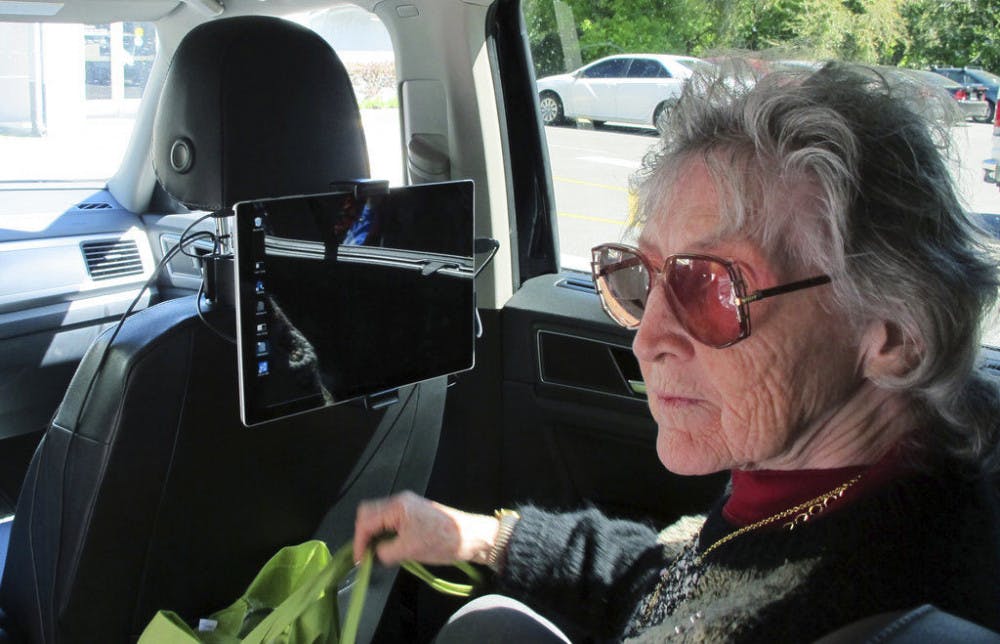When Solomon O’Leary lost his vision four years ago, he never thought he’d run errands alone.
But in January, O’Leary got into the rear passenger seat of a Volkswagen SUV and went to Kmart — guided by Atlas, a program in self-driving cars designed by UF researcher Julian Brinkley to address the needs of those with visual impairments.
Brinkley said he designed the system to help visually impaired people interact with a self-driving vehicle. He used about $60,000 in grants from UF and Enteraxion Labs to fund his research, which began in 2016.
Because the project is in its early stages of development, Brinkley could not estimate how much the program will cost users. But. he added, the idea is that it will be incorporated into manufacturer systems and cost nothing for the user.
The Atlas system is part of a larger research project that consisted of surveys, focus groups and participatory design sessions with blind and low-vision participants, the 39-year-old said. The goal was to identify the needs, preferences and concerns of visually impaired people using self-driving cars.
O’Leary, a 34-year-old from Ocala who tested the program, said he got in the car and used voice commands to operate it. Even without having the address, Atlas took O’Leary to the nearest Kmart.
Along the way, Atlas told him the landmarks he was passing, O’Leary said. Just in case O’Leary needed to stop at a gas station, Atlas could change the route.
When O’Leary arrived at his destination, Atlas told him where he was and gave him walking directions to get inside, he said. The system even asked him if he wanted it to park the car and wait for him.
“I liked that it was very easy to control,” O’Leary said. “A child can do it.”
Brinkley said he began working on Atlas in 2017 but has been working on technology to help the visually impaired since 2012, when he was working on his master’s degree at East Carolina University in North Carolina.
People with disabilities who can’t drive often have higher rates of unemployment, Brinkley said. Limited mobility has been related to medical issues, mental health issues, social isolation and lower quality of life.
He said the problem is self-driving technology is potentially inaccessible to visually impaired people.
O’Leary said Atlas is important because it gives him the freedom to do things on his own, without relying on others for help.
“One of the main things you lose when you lose your vision is your independence,” he said. “Atlas would definitely change my life.”
In this photo taken Wednesday, March 7, 2018, shows Sharon Van Etten, listening to a computerized voice in a vehicle equipped with software meant to help the visually impaired interact with self-driving cars in Ocala, Fla. Six years after a video went viral of a blind man going through a drive thru in a self-driving car, advocates for visually impaired people worry the industry is leaving them behind as they develop the cars of the future. So prominent groups are turning to university researchers like Brinkley to help build systems that will unlock the potential of autonomous cars' for the blind.






